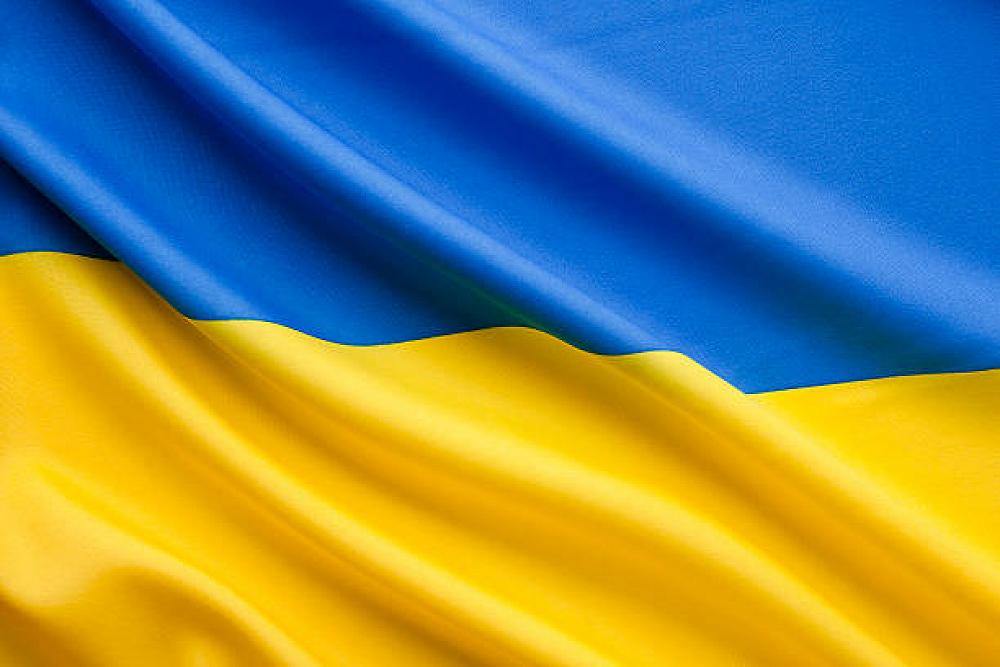
Events in Ukraine: ways to to support your son
There is a lot going on in the world at the moment and events in Ukraine have certainly added to this in a sudden and shocking way.
Talking about events in Ukraine is important as it will help your son to manage his emotions, develop empathy and identify his support networks. Your son needs to feel secure and know that the adults in his life can manage challenging feelings and difficult topics and that he has the opportunity to talk about these and ask questions if he needs to. This newsletter provides some possible approaches for you to consider as you talk with your son.
Make time to talk with your son. If you have not done so already, take the time to talk with your son about what is happening and answer any questions he has. Choose a time when you are both free from distractions. You could ask him:
What have you heard about events in Ukraine?
How are you feeling about events in Ukraine? Or how do you feel about what’s happening in the world?
What are you or your friends thinking about in terms of the Ukraine situation?
It is vital that your son does not feel his questions or comments are silly. Give your son time if he is finding it difficult to articulate something and help him to explain things with questions such as “What do you mean by…”
You do not need to have all of the answers to his questions but you can help him to look up reputable websites to answer his questions. We need to be honest with young people so we should not try and hide the fact that people have been hurt and killed yet this needs to be age appropriate and only enough for your son to understand and to feel safe. Avoid sharing additional information he may not be interested in or ready to hear.
If your son chooses not to talk about events in Ukraine this is fine and you should not push it, yet it would be important for him to know that it is best to talk about any concerns or fears he is having, as this is normal and okay. Let them know that as an adult you are here to support him and keep him safe.
Focus on helpful information and limit media access. Depending on your son’s access to media, it is important that there is parental supervision of what he is reading and seeing about this event so he does not feel overwhelmed by the information. This is especially important if your son is worried and you have noticed changes in his behaviour. By focusing on helpful information your son can see the good that is happening such as the thousands of people from many nations who are not directly affected helping those who are, and those very brave individuals within Russia who are protesting the war. By investigating websites together you can create a learning opportunity for your son to identify helpful information. In this respect Common Sense Media may be a useful resource to help educate your son on how to identify unreliable sources of information.
It is also important that your son sees events in Ukraine as its own event and not just ‘another terrible thing’ happening in the world. This will help your son to see that there are still good things happening in the world.
Focus on what he can control, rather than what he cannot control. The reality is there is so much we cannot control regarding events in Ukraine, and this can seem overwhelming, so help your son to focus on what he can control. He can choose to limit what he reads online and only focus on reputable websites. He may like to show his support for Ukraine, for example by wearing blue and yellow, attending a local, peaceful demonstration or donating to humanitarian causes supporting those who are evacuating refugees. You could talk to your son about the importance of supporting Russian people who do not agree with the actions of their president but who may be experiencing aggression from others. In this respect your son will be developing his empathy and respect for others. What your son can control most easily is focusing on day to day things such as helping out at home, doing his best at school and trying hard in all that he does.
Maintain healthy routines: Keeping things ‘normal’ and making sure your son has the opportunity to do things you know are calming for him will be helpful, such as sport, music, reading, puzzles, colouring or playing games with friends. If you practise mindfulness tasks with your son, or he may have been taught these by his teacher, you could do these together to keep the mind calm and focused on the present.
If you would like more information on how to talk with your son about the events in Ukraine this is an excellent article: Talking with children about war and violence in the world
Some of the themes in this newsletter have already been touched on in previous newsletters regarding different contexts. It may be helpful to revisit these if you would like to talk to your son about other current events such as the upcoming anniversary of the Christchurch Mosque attack, the impact of COVID-19 and the recent protests: Making time to talk; Coping with events beyond our control; Positively managing change and uncertainty
Jenelle Hooson
Jenelle is a Registered Provisional Member with NZAC (New Zealand Association of Counsellors).
If you wish to discuss the services the School Counsellor can provide, please see your son’s homeroom teacher or Scott Johnson: scott.johnson@medbury.school.nz.